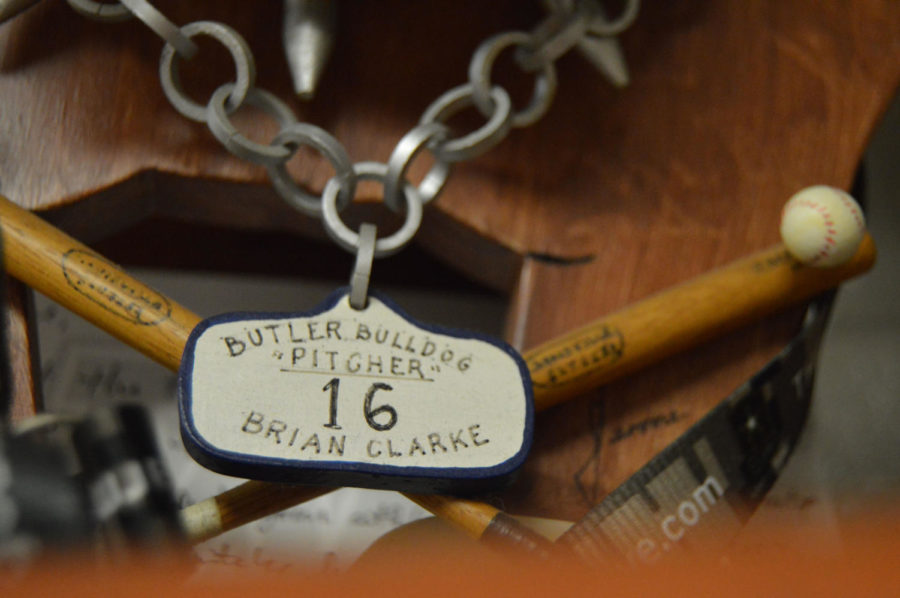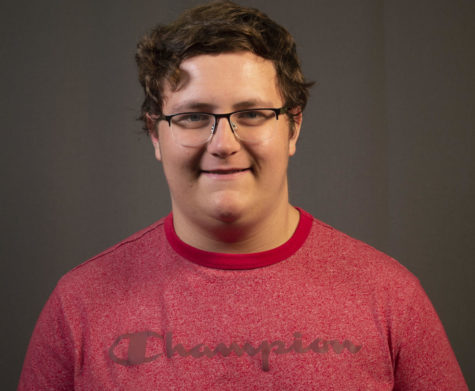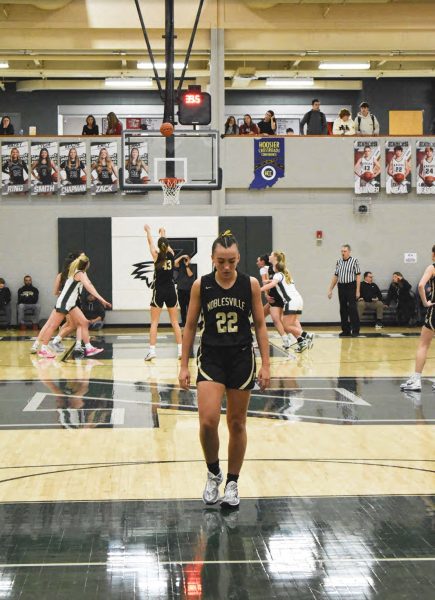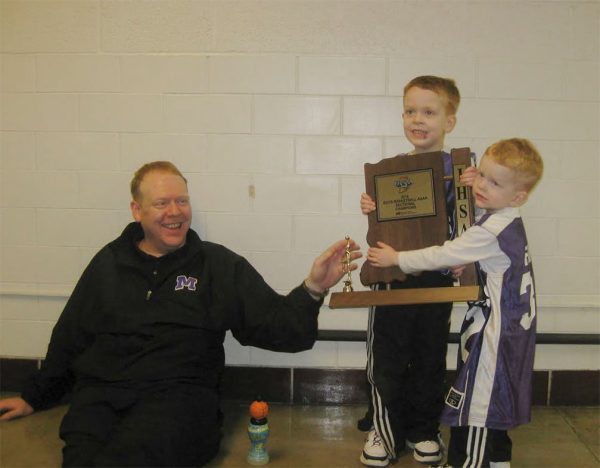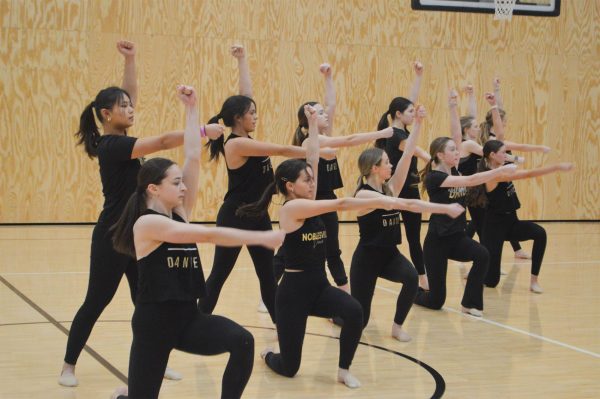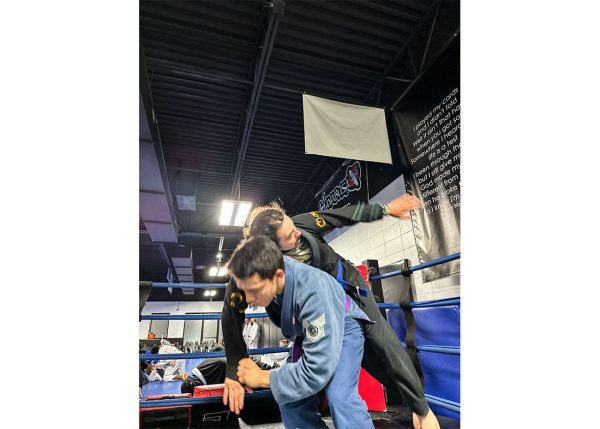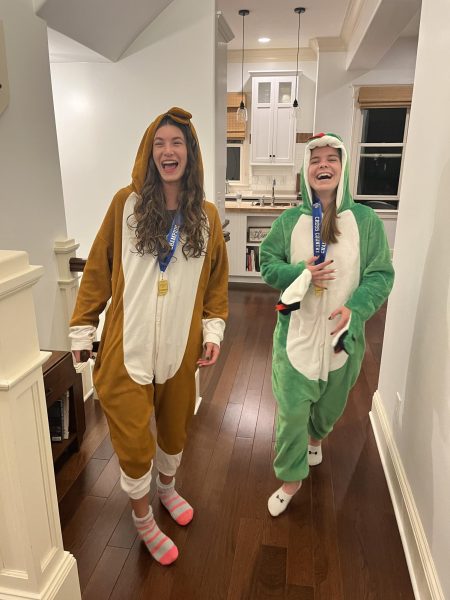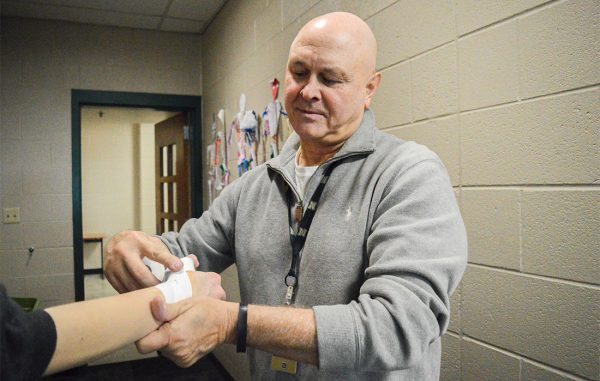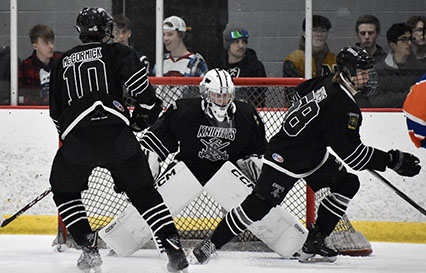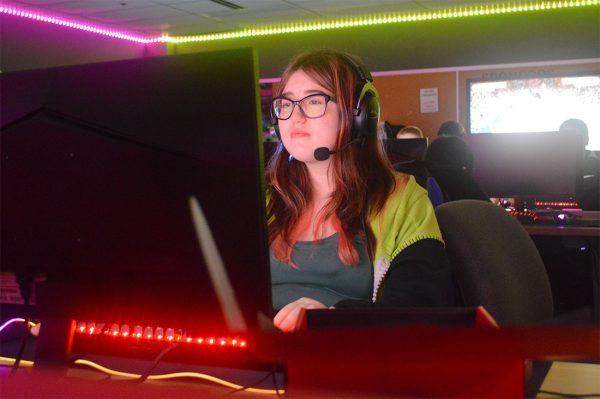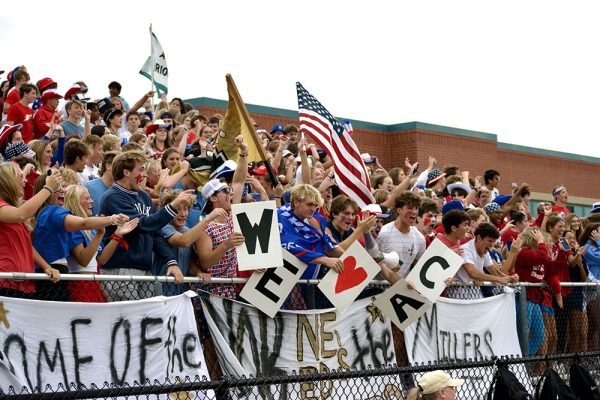A Blessing in Disguise
Photo by James Simons
December 15, 2017
The date is Friday, February 14th, 1977. Conant High School’s basketball team is looking to get a good start to their weekend against rival team Hoffman Estates. Within a few minutes of the game, Conant’s star power forward and center, senior Brian Clarke, goes up for a rebound after the missed shot by Hoffman Estates. On the way down Clarke landed on the foot of a smaller guard, resulting in a nasty twisted ankle. Ten feet and an adrenaline rush later, Clarke collapsed from pain. Clarke, now the strength conditioning coach and coordinator of NHS, was taken to the athletic trainer’s room.
“I knew I was hurt,” Clarke said. “I saw everything that I dreamt for and worked for going away.”
Those dreams were to play Major League Baseball as a pitcher. But before Clarke could even think about that, he needed to go to the emergency room. At the ER, Clarke was initially diagnosed with a grade one ankle sprain. However, Clarke and his family knew better, resulting in a trip to the local surgeon for a second diagnosis. At the surgeon’s office, an MRI was performed and Clarke was diagnosed with a peroneal tendon subluxation. The peroneal tendons are located at the bottom of one’s legs near the heels. Supportive tissue holds the peroneal tendon in it’s place. When the supportive tissue is damaged or broken, the peroneal tendon may be free to slip out of place, this is called a peroneal tendon subluxation.
“They did the MRI and realized what was going on,” Clarke said. “Then they went and did surgery. I was home for about a week and then from there I was on crutches and in a cast.”
The cast cost Clarke some interest that colleges had in him. Before the injury, as a 6 feet 6 inch tall left-handed pitcher, Clarke had plenty of colleges looking to recruit him.
“I had letters from every Big Ten school. When you’re an almost 6’6” left hander, throwing hard, you get a lot of letters just because of the potential, not necessarily how good you are,” Clarke said.
In addition to every Big Ten college, Clarke also received letters from MLB teams including the Minnesota Twins, Chicago Cubs, and Clarke’s favorite team, the Chicago White Sox.
“It was pretty exciting [when I got a letter from the White Sox], I was younger, and my parents and my pitching coach had me pretty level-headed that these letters are based on your potential, which means you haven’t done anything yet,” Clarke said.
In truth, Clarke was a little more than just potential. In fact, he gave up no home runs his entire High School career, and find another impressive stat. But he knew he had a long way to go and he stayed humble during the seemingly endless rainfall of recruitment letters. However, when Clarke was injured on that cold, February night, everything changed.
“Everybody knew I got hurt. And colleges were calling me in February and March, so coaches were staying in contact with me but I’m out of commission so [the offers] weren’t coming,” Clarke said.
With most of the previous offers expired, and less than one semester before he would graduate from high school, Clarke had a narrow range of college options. Although most colleges had a receding interest in Clarke, one college had faith in Clarke making a successful recovery and return to baseball.
“The head baseball coach there was a left handed pitcher who had been following me for a while, was content with me just getting healthy, he had done his research, but Butler was never on my radar whatsoever,” Clarke said.
Even before Clarke accepted Butler University’s offer, which was well after the injury, Clarke was rushing his rehab. Clarke’s passion for the game is what drove him to become a player worthy of recruitment for college baseball. However, during his long and tedious recovery process, that same drive became his downfall.
“I went back to work on a baseball diamond too early,” Clarke said. “I know I was dishonest with the professionals that I needed to be honest with. Because I wanted to play so bad, so bad -it wasn’t even about scholarships- I just wanted to play.”
As a result of Clarke’s hurried rehab, he had to deal with constant pain and emotional troubles.
“It held me back from some physical activities, training, things like that, because I never let it properly heal because I was always pushing it. It held me back mentally because sometimes I would get angry about it, because what I envisioned, what I thought it was gonna be, wasn’t there,” Clarke said
Baseball had become such a big part of Clarke’s life that he was willing to take the pain in order to play. But as he got older, he realized that baseball wasn’t everything.
“If i ask you who you are, tell me about yourself, people say: ‘well, I play baseball,’ or ‘I’m a gymnast,’ ‘I’m a swimmer,’ and I want to make sure that people understand the reality of that’s part of what you do,” Clarke said. “Yes it consumes a lot of your time, but that is not who you are. And that one of the realizations for me that came out of [the injury],”
With a seemingly everlasting injury, and no idea what he wanted to do, a college-aged Brian Clarke made up his mind. Exercise science and secondary education.
After graduating from Butler, Clarke had an opportunity to be a student-teacher intern. Clarke worked with a few other interns while there, and despite having a very basic knowledge of strength training, Clarke was the spotlight of the three interns.
“There was two other guys there at the same time and I just point blank outworked them, and it caught the attention of the lead student teacher practitioner, who then offered me the opportunity,”
That opportunity was a job at Pike High School. After that Clarke became the head strength coordinator Warren Central. Then, finally, around ten years ago, Clarke was introduced to Noblesville High School, becoming the strength and conditioning coach and coordinator.
Clarke now has a wife and two kids, all thanks to what seemed like an ominous injury.
“If i never got hurt that game, I never would have met my future wife, because a cheerleader for the other team, who I did not know, ended up going to Butler University and I met her right before I went through a mutual friend, but if I didn’t get hurt, ironically against her team, I might not have gone to Butler, it’s kind of funny, my three kids wouldn’t even be born if I didn’t tear my ankle apart,” Clarke said.
Additionally, Clarke’s past injury allows him to relate to the athletes he coaches. He can put himself at their level and truly understand what they’re going through.
“Fortunately from my experience i can talk to kids a lot more at a one-to-one level and i understand the empathy and what they’re going through because it’s hard,” Clarke said
Clarke views the injury as something that changed his life for good, in fact he even views it as a blessing.
“The injury did a lot more for me, because my plan didn’t work out,” Clarke said. “Adversity that no one could change, no one could change, made me live and have to go a different direction. So if anything it was a blessing. ‘Cause I’m not working here at Noblesville if that injury doesn’t occur.”
If Clarke could go back, the one thing he would change is his recovery. But Clarke has a piece of advice for athletes in his position now.
“E+R=O. The event plus your response is gonna equal the outcome. So make sure in your response, You’re being honest, you’re being humble, you’re working hard. And that comes down to character. You’re performance and moral skills of who you really are,”


